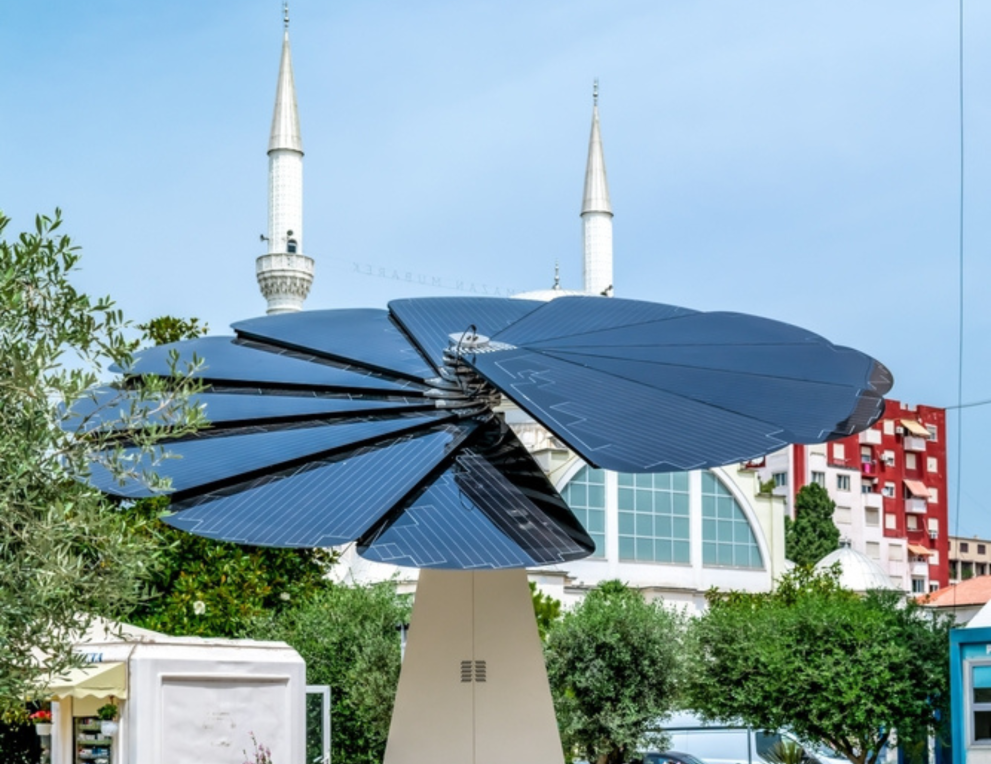
The current global energy crisis exacerbated by the war in Ukraine has accelerated the urgency to transform the way we use and consume energy and highlighted, once again, the essential role that renewable energy will play in this process. For the Western Balkans, a region highly dependent on coal and energy imports, the crisis presents an opportunity to develop its considerable renewable energy potential. Driven by motivations to increase energy security, be protected from rising energy prices and play an active role in the fight against climate change, citizens and businesses are starting to turn to renewables self-consumption for electricity and heating despite facing numerous obstacles.
Under their membership in the Energy Community and as aspiring EU Member States, Albania, Bosnia and Herzegovina, Kosovo*[1], Montenegro, North Macedonia and Serbia have committed to decarbonise their economies, improve the environmental situation in relation to energy supply, increase energy efficiency and use their renewable energy potential. They are currently in the process of implementing key elements of the so-called Clean Energy for all Europeans Package (CEP). The CEP promotes the active role of final customers in the energy market and makes an enabling framework to promote and facilitate the development of renewables self-consumption mandatory. Renewables self-consumption schemes allow consumers, individually or as a group, to generate, consume, store and sell self-generated electricity.
All Western Balkan countries have already put in place, at least partially, an enabling legal framework for renewables self-consumption and interest from households and businesses is rising also thanks to declining costs of renewable energy technologies, especially solar photovoltaic. As at June 2022, the largest number and installed capacity of renewables self-consumption was in North Macedonia (453 self-consumers), followed by Albania (249), Kosovo* (129), Serbia (52) and Montenegro (29). Self-consumption in Bosnia and Herzegovina is yet to begin. Nevertheless, many obstacles stand in the way of citizens fully participating in the energy market.
First and foremost, the countries need to improve the regulatory framework for renewables self-consumption schemes. Further efforts are needed to modernise network tariffs in case of net metering and net billing schemes as well as to clarify provisions on tax revenue. Specific tariffs for self-consumers, as a separate subclass of network users, should be designed to incentivise self-consumption to maximise support to the grid on the one hand and mitigate risks related to cost reflectivity and cost recovery on the other.
Secondly, public awareness campaigns about the financial, environmental and security benefits of renewables self-consumption need to be stepped up. This is especially the case given the low, subsidised household electricity prices in the region which may not incentivise consumers to invest in alternative energy supply. Raising awareness of energy efficiency measures and their implementation is just as important as self-consumption in order to reduce energy bills for citizens in a sustainable manner.
Thirdly, utilities, which also stand to gain from reduced network losses and peak loads, need to become more proactive when it comes to encouraging consumers to switch to renewables self-consumption. This is already happening in Montenegro where the power utility will provide solar panels to interested consumers who can pay for them via a loan over a period of five to seven years. The project is supported by a 30mil EUR loan from the Investment and Development Fund of Montenegro. At the Energy Community Secretariat, discussions are currently underway with international financial institutions to replicate this model in other Western Balkan countries.
Renewables self-consumption can help the Western Balkans to utilize its vast renewable energy potential and build resilient and environmentally friendly energy systems by cutting reliance on energy imports and fossil fuels. It is also a key ingredient for making the energy transition a success. It is high time that the citizens of the Western Balkans are fully empowered to act and shape the energy transition.
Recommended links:
- Energy Community Energy Transition Tracker, July 2022: https://www.energy-community.org/dam/jcr:a09255dc-ac8a-47b1-b664-3463705906de/EnC_Tracker_07_2022.pdf
- Policy Guidelines by the Energy Community Secretariat on Integration of Renewables Self-Consumers, September 2020: https://www.energy-community.org/dam/jcr:7e4760a1-3890-4a7a-a067-d9e16c80ddeb/PG_2020_03_RES.pdf
About the author:
Naida Taso is a Renewable Energy Expert at the Energy Community Secretariat. Naida is responsible for all renewable energy-related activities at the Secretariat and leads the Energy Community Renewable Energy Coordination Group. Her work focuses primarily on assisting Energy Community Contracting Partis with the transposition and implementation of EU acquis, including work on design of market-based support schemes, guarantees of origin, self-consumption schemes, etc.
Naida holds a Master of Electric Power Engineering and is a Certified Expert in Climate and Renewable Energy Finance. She has 10 years of international experience in renewable energy, sustainable development, energy modelling and electricity markets.
[1] * This designation is without prejudice to positions on status, and is in line with UNSCR 1244 and the ICJ Opinion on the Kosovo declaration of independence.
Disclaimer: This article is a contribution from a partner. All rights reserved.
Neither the European Commission nor any person acting on behalf of the Commission is responsible for the use that might be made of the information in the article. The opinions expressed are those of the author(s) only and should not be considered as representative of the European Commission’s official position.
RELATED ARTICLES:
➔ EUSEW Awards 2022: Meet the finalists
➔ How to keep climate and energy policies aligned in the new state of the world?
➔ Empowering youth for a sustainable energy transition
Details
- Publication date
- 6 September 2022
- Author
- European Climate, Infrastructure and Environment Executive Agency
